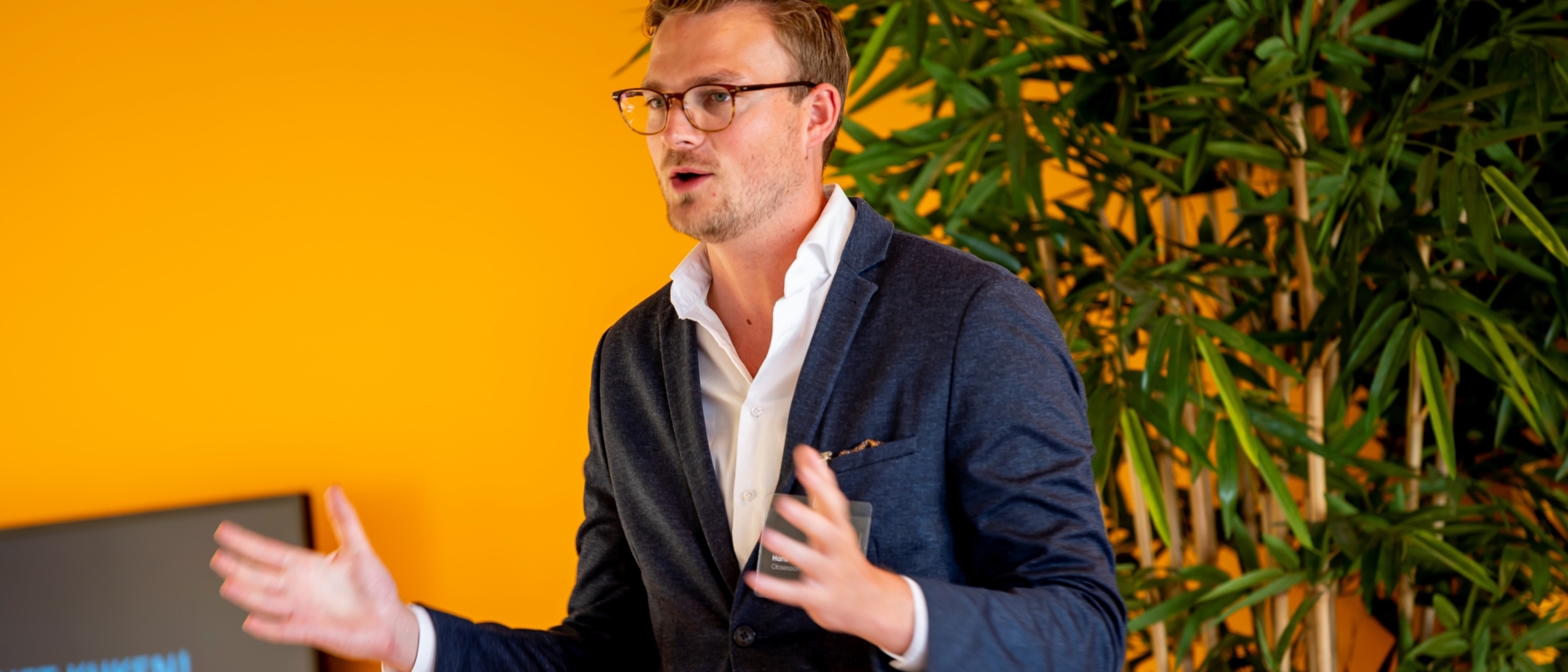Today's term "event management" no longer has the same meaning as it did two decades ago. What was once seen as pure organizing is now viewed with much more depth. Events have now become a marketing tool that is used to change certain behaviors and achieve objectives. Hans Klaver, Sales and Marketing Manager at Obsession, shares his views on the future of corporate events and the agency of the future.
The agency of the future
Data-driven events
Clients are increasingly finding that they can change both feelings and tangible behavior with an event. With the digitalization of the world, more and more data-driven marketing tools are available to make these effects of events measurable. This allows future choices to be made based on data rather than intuition. According to him, in the future it will be especially important to investigate who exactly your target group is. Data models will be used more and the focus will be more on factual information about the target group. "E-commerce companies in particular can easily provide agencies like ours with a great deal of information about their target group," says Hans. "If you know how to interpret and translate that data well, you can be creative and surprising and optimize results. It is therefore important that we, as an event partner, are also aware of these valuable insights. As an events agency, we are now touching on more and more elements of the communication business, which enables us to optimize the results of events. For example, we carry out research prior to the event to gain a better understanding of the target group, we hook up communication professionals who can translate the content even better and we integrate sustainability.''
Is an event the right choice?
Making data-driven decisions can sometimes lead you to the conclusion that an event is not the right tool to use. That something completely different is needed. "That's not beneficial to us as an agency, but I'd rather help a client get it right than organize an event that ultimately doesn't achieve its goal," believes Hans. "That, too, is part of the advisory role of the agency of the future. By bringing more expertise in-house, we can provide the client with increasingly complete, effective advice and make an impact together."

Consulting event industry
Not all events are measurable, nor do they need to be. According to Hans, in the future there will be a natural split between a service event industry and advisory event industry. "Agencies or companies that go the advisory route will become even bigger and broaden their services. They will be hooked up by the client at an earlier stage because they can provide them with more complete and effective advice," Hans believes. "The more we are allowed to know about the content of the client - and not just asked to come up with the form - the better and faster we can create a suitable concept that makes an impact. After all, the event concept and the form should always reinforce the content," explains Hans. But how do you get more depth to the question? According to him, it all starts with a good conversation and taking time to get to know each other. "Then you start to analyze the question and build a team. The team puts together a plan based on the client's content. The plan expresses itself in an advisory proposal and this is pitched to the client." So the role of event manager at Obsession has already really changed to project manager with an advisory role rather than follow-on role.
Towards a sustainable future
Finally, sustainable practices are one of the most important attributes for the future. Companies and governments are working towards a better and cleaner world. "Events should therefore not be left behind. It is the duty of the agency of the future to come up with concrete methods to conceive and especially organize events in a structurally more sustainable way''. Companies and organizations are subject to increasingly strict rules when it comes to making processes more sustainable. They have to provide so-called 'Impact Reports' as proof of their improvements. As an events agency, you can make a significant contribution to this. Especially when we start organizing large-scale live events again. For example, map travel movements, organize hybrid events, communicate in a fresh way about your sustainable catering offerings, suggest compensation options and look for locations with an energy-efficient label.
